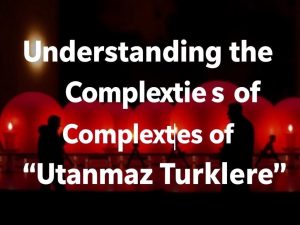Joan Bennett Kennedy, a prominent figure in American society, has made notable contributions that resonate within the Kennedy lineage and beyond. As the wife of Edward Kennedy, her life intertwines with an influential political dynasty, witnessing historical moments while carving out her own unique path of advocacy and philanthropy. This article aims to explore her early life, political engagement, personal struggles, and the enduring impact of her legacy in American cultural and political history.
Early Life and Background
Family and Childhood
Born on September 17, 1928, in New York City, Joan Bennett Kennedy grew up in a family that valued education and community service. Her father, a successful businessman, shaped her understanding of hard work, while her mother imbued her with a strong sense of social responsibility. Joan had an older sister, Lee, with whom she shared a close bond, navigating the complexities of a privileged upbringing together.
Joan’s education began at the prestigious Chapman School in New York and continued at Smith College, where she majored in literature and developed an early interest in writing and the arts. Her childhood experiences, steeped in the cultural richness of New York, fostered her love for community and engagement.
Role in Society
Growing up in a socio-economically stable environment provided Joan with unique opportunities. Her family’s wealth afforded her access to elite education, yet she was also aware of societal issues that plagued marginalized communities. The influence of her parents’ values instilled in her a strong sense of advocacy and a belief in the need for societal change.
Thus, Joan Bennett Kennedy not only enjoyed the affluence that accompanied her upbringing but also recognized the responsibilities and expectations that came with it, laying the groundwork for her future contributions to society.
Marriage and Political Life
Marriage to Edward Kennedy
Joan Bennett and Edward “Ted” Kennedy were married on September 2, 1958, in a ceremony that took place at St. Patrick’s Cathedral in New York City. Their union was celebrated among family and friends, marking the beginning of a significant partnership that would accompany major historical events in the United States.
In their early years of marriage, the couple welcomed three children: Kara, Edward Jr., and Patrick. They navigated both joyous moments and challenging circumstances, with Joan playing a vital role in the household as Ted pursued his political career. Joan often hosted dinners that combined political discussions with familial warmth, establishing her place in a world dominated by public service.
Involvement in Politics
By marrying Ted Kennedy, Joan Bennett Kennedy was thrust into the political limelight. She quickly adapted to her role as a supportive spouse, participating actively in Kennedy campaigns. Her presence not only enriched the campaigns but also humanized the political process, allowing voters to see the personal side of the political titan.
Joan’s involvement extended to various charitable causes, particularly those concerning mental health and women’s rights, reflecting her values and interests. Throughout her marriage, Joan supported her husband during contentious debates and helped shape his political agenda, significantly influencing his public persona.
Personal Challenges
Struggles with Public Life
The spotlight of public life was not always kind to Joan Bennett Kennedy. She faced immense media scrutiny, with her every move being analyzed and critiqued. This relentless attention placed a strain on her marriage and personal well-being, forcing her to grapple with the dichotomy of public admiration and personal insecurities.
Despite the challenges, Joan sought to balance her private life with public expectations. She learned to cultivate resilience, focusing on her family while developing an understanding of her role in the public sphere.
Family Tragedies
Loss defined much of Joan’s experience within the Kennedy family. The tragic assassination of her brother-in-law, President John F. Kennedy, in 1963, and later the death of her son, Patrick, deeply affected her. These events tested her emotional fortitude and ability to cope with grief.
Joan turned to various support systems, including close family ties and friendships within the Kennedy community. Through her pain, she fostered a commitment to mental health advocacy, understanding firsthand the importance of emotional support.
Health Issues
Joan Bennett Kennedy has faced several health challenges throughout her life, including battles with depression. These health issues often influenced her public engagements, drawing attention to the importance of mental health discussions. Her personal struggles inspired her advocacy work, amplifying her voice on issues of mental wellness and compassion.
Advocacy and Philanthropy
Areas of Focus
Throughout her life, Joan Bennett Kennedy has championed various causes, focused particularly on mental health and women’s rights. She has worked with organizations such as NAMI (National Alliance on Mental Illness), raising awareness and advocating for better resources for those affected by mental health disorders.
Joan’s passion for women’s issues has also led her to engage in initiatives that aim to empower women and provide them with the resources they need to thrive. Her strong belief in equality and opportunity has driven her philanthropic efforts forward.
Contributions to the Community
Joan’s philanthropic efforts extend beyond advocacy. She has sponsored several community programs focusing on literacy and education, ensuring that future generations have access to necessary resources for success. One of her notable initiatives includes her support of reading programs in underprivileged schools, which bridged the gap between opportunity and access to education.
Her dedication to these causes laid a strong foundation for a legacy of compassion and social responsibility, with many organizations and individuals inspired by her commitment to positive change.
Later Years and Legacy
Personal Reflections
In reflective interviews and writings, Joan has shared deep insights about her life experiences, illustrating a journey marked by resilience, love, and advocacy. Over time, she has embraced a revised perspective, understanding the complexity of her public role while valuing her private experiences.
Joan’s reflections often touch on the significance of maintaining a balance between personal identity and public expectation, showcasing her growth in both areas.
Enduring Impact
Joan Bennett Kennedy’s influence extends well beyond her immediate family and into the broader cultural narrative. Her advocacy for mental health and women’s rights set a precedent for subsequent generations of activists and public figures. Today, she is regarded as a pioneer for those looking to make positive changes in society.
Her enduring impact is reflected in the recognition she has received, including honorary degrees and awards for her humanitarian contributions. In contemporary society, Joan’s legacy is celebrated for its authenticity and compassion, positioning her as a role model for individuals seeking to align personal values with public service.
Table Heading: Key Milestones in Joan Bennett Kennedy’s Life
| Year | Milestone |
|---|---|
| 1928 | Born in New York City |
| 1958 | Married Edward Kennedy |
| 1963 | Brother-in-law John F. Kennedy assassinated |
| 1980 | Advocated for mental health awareness |
| 1991 | Began supporting women’s rights initiatives |
| 2020 | Recognized for her philanthropic efforts |
FAQ Section
1. When was Joan Bennett Kennedy born?
Joan Bennett Kennedy was born on September 17, 1928, in New York City.
2. Who was Joan Kennedy married to?
She was married to Edward “Ted” Kennedy, a notable U.S. senator and member of the Kennedy family.
3. What advocacy work is Joan Bennett Kennedy known for?
She is known for her advocacy in mental health and women’s rights, supporting various organizations and initiatives.
4. How did family tragedies impact Joan Kennedy?
Family tragedies, including the assassination of John F. Kennedy and the loss of her son, profoundly shaped her emotional well-being and her commitment to advocacy.
5. Did Joan Bennett Kennedy face health challenges?
Yes, she has faced health issues, including struggles with depression, which have influenced her advocacy work.
6. What awards has Joan Bennett Kennedy received?
Joan has received several honors for her contributions to advocacy and philanthropy, including honorary degrees.
7. How did Joan Bennett Kennedy influence her husband’s political career?
She played a supportive role in his campaigns and helped shape his agenda in areas related to social issues.
8. What was Joan Bennett Kennedy’s educational background?
Joan attended the Chapman School and graduated from Smith College with a major in literature.
9. How has Joan Bennett Kennedy contributed to her community?
She has been involved in various initiatives focused on education, literacy, and mental health awareness.
10. What is Joan Bennett Kennedy’s legacy?
Her legacy is characterized by compassion and advocacy, influencing many who seek to make social changes.




